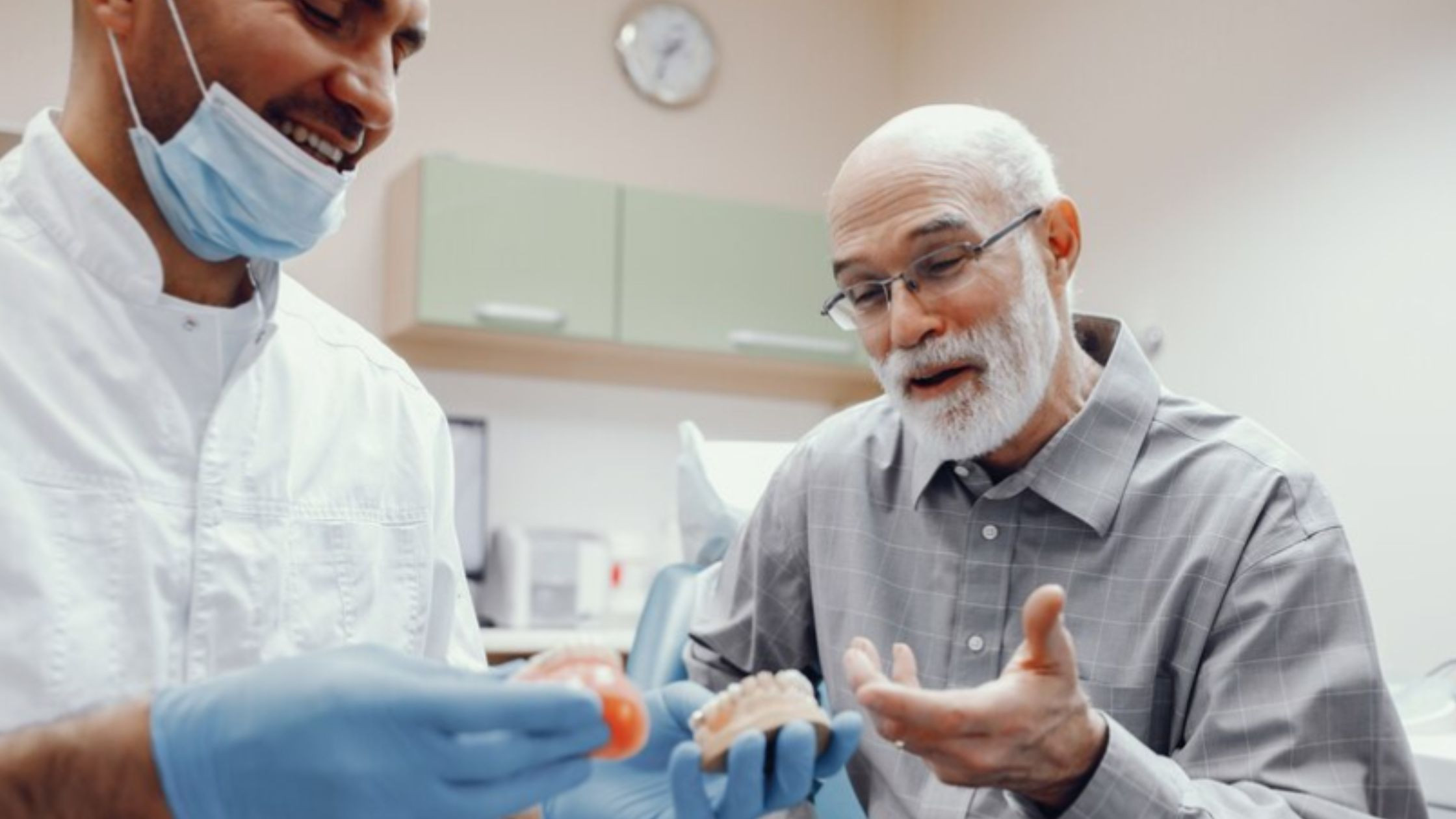The Importance of Dental Care in Aging Populations
Posted on June 25, 2024 by Admin

As populations around the world continue to age, the importance of dental care among the elderly becomes increasingly significant. Aging brings about a variety of changes in the body, including oral health issues that can have profound implications for overall well-being. This blog explores why dental care is crucial for the elderly, common oral health concerns they face, and practical tips for maintaining good oral hygiene in later years.
Why Dental Care Matters for the Elderly
Dental care is essential for everyone, but it becomes even more critical as we age. Here are several reasons why:
Oral Health Impact on Overall Health: The state of oral health is closely linked to overall health, especially in older adults. Poor oral hygiene can contribute to various systemic conditions such as cardiovascular disease and diabetes.
Prevention of Tooth Loss: With age, the risk of tooth loss increases due to factors like gum disease, decay, and wear over time. Dental care helps in preventing these issues and preserving natural teeth.
Maintaining Proper Nutrition: Healthy teeth and gums are crucial for chewing, which is essential for proper nutrition. Older adults with dental problems may struggle to eat certain foods, leading to an inadequate diet.
Quality of Life: Oral health affects speech, appearance, and self-esteem. Maintaining a healthy smile can significantly enhance quality of life and social interactions in later years.
Must Read : Busting Dental Myths: What You Really Need to Know
Common Oral Health Concerns in the Elderly
Several oral health issues are particularly prevalent among aging populations:
Gum Disease (Periodontal Disease): This is one of the most common dental problems in older adults. It can lead to gum recession, tooth loss, and even impact systemic health.
Tooth Decay: Cavities can develop at any age, but older adults may experience root decay due to gum recession or dry mouth caused by medications.
Dry Mouth (Xerostomia): Many medications prescribed to older adults can cause dry mouth, which increases the risk of tooth decay and oral infections.
Tips for Maintaining Good Oral Hygiene in Later Years
To promote oral health in aging populations, consider these practical tips:
Regular Dental Visits: Schedule dental check-ups and cleanings at least twice a year or as recommended by your dentist.
Brush and Floss Daily: Clean your teeth thoroughly at least twice a day with fluoride toothpaste and floss daily to remove plaque and prevent gum disease.
Quit Smoking: Smoking is detrimental to oral health and increases the risk of gum disease, oral cancer, and tooth loss.
Eat a Balanced Diet: Consume a variety of nutritious foods, limiting sugary snacks and beverages that can contribute to tooth decay.
Must Read : Back-to-School Dental Tips for Kids and Teens
Use Mouthwash: Consider using an antimicrobial mouthwash to reduce plaque and prevent gingivitis.
Address Denture Care: If you wear dentures, clean them daily and remove them at night to give your gums a rest.
Conclusion
In conclusion, dental care plays a crucial role in maintaining overall health and quality of life for aging populations. By addressing common oral health concerns and adopting good oral hygiene practices, older adults can preserve their natural teeth, enjoy better nutrition, and reduce the risk of systemic health issues. Regular visits to the dentist, along with daily brushing, flossing, and a healthy diet, are essential components of a comprehensive approach to oral care in later years. Taking proactive steps towards oral health today can lead to a healthier, happier tomorrow.
Incorporating these habits into daily routines can make a significant difference in oral health outcomes as individuals age. By raising awareness of the importance of dental care in aging populations, we can promote better overall health and well-being for seniors everywhere.
Faqs
-
1. How does aging affect oral health?
Aging can lead to gum recession, increased risk of gum disease and tooth decay, and dry mouth due to medications, impacting overall oral health.
-
2. Why are regular dental check-ups important for seniors?
Regular check-ups help detect and address oral health issues early, preventing complications like tooth loss and oral infections common in older adults.
-
3. What can older adults with arthritis do to maintain good oral hygiene?
They can use adapted tools like electric toothbrushes with larger handles, softer bristle brushes, and floss holders or interdental brushes for easier cleaning.
-
4. How does nutrition affect oral health in older adults?
A balanced diet rich in vitamins and minerals supports strong teeth and gums. Avoiding sugary snacks and staying hydrated helps prevent tooth decay and dry mouth.
-
5. When should an older adult see a dentist immediately?
Symptoms like persistent tooth pain, swollen or bleeding gums, loose teeth, difficulty chewing, persistent dry mouth, or non-healing sores in the mouth require prompt dental attention to prevent worsening oral health issues.
Recent Post
- The Importance of Oral Health Education for Children
- How to Choose the Right Orthodontic Treatment for Adults
- The Link Between Oral Health and Stroke Risk
- How to Address and Prevent Gum Recession
- Innovations in Dental Anesthesia: Pain-Free Procedures
- The Role of Saliva in Oral Health: Functions and Disorders
- Exploring Holistic Dentistry: What You Need to Know
- How Oral Health Affects Your Immune System
- The Benefits of Using Dental Probiotics
- Oral Health and Pregnancy: Myths and Facts